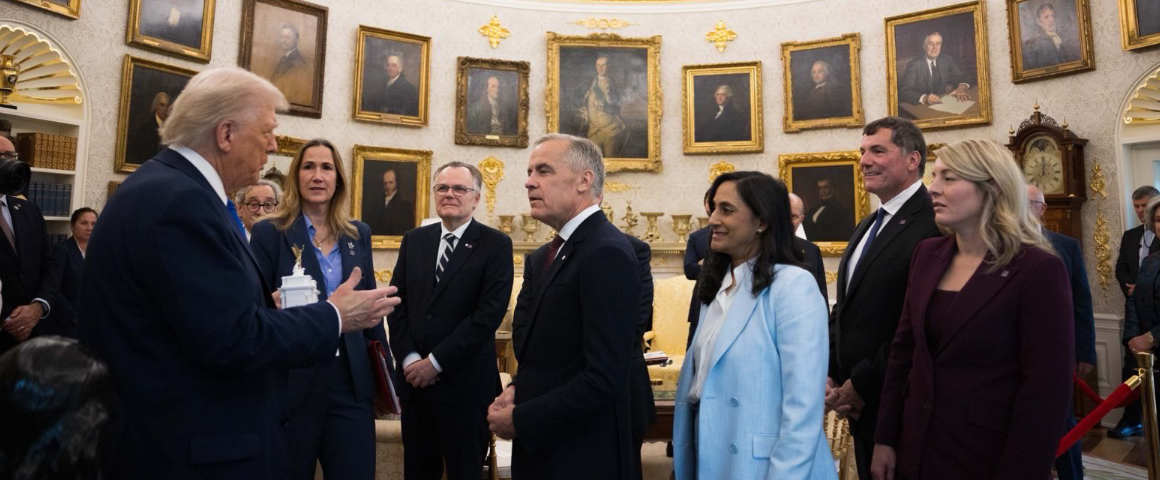By Adrien Welsh
When Hugo Chavez came to power in Venezuela in 1999, he demolished imperialism’s triumphant claim that history had ended. Cuba was no longer alone in the sub-region – other anti-imperialist movements, which until then had confined their actions to the economic sphere, now understood the importance of seizing political power. Such was the case with Evo Morales in Bolivia and then Rafael Correa in Ecuador, followed by El Salvador, the Sandinistas’ return in Nicaragua, Pepe Mujica in Uruguay, etc.
Of course, US imperialism realized it was losing control of its proclaimed backyard, so it instigated the 2002 coup d’état to depose Chavez and restore a subservient bourgeois government. But the Venezuelan working class and people and the working class rejected this, mobilizing to put their legitimate president back in place. So, imperialism tried other dirty tricks, the latest of which include the coup attempt by Juan Guaido (whom Canada still recognizes despite his complete lack of credibility) and desperate mercenary-led military attacks against the Maduro government.
The Venezuelan people stood their ground but have paid a high price through the sanctions which have been imposed on them. They fought back because they knew that if the continental right-wing returned to power, it would spell the end of progressive labour standards (the 2012 Organic Law of Labour and Workers), social programs, infrastructure projects, nationalized companies and all efforts at improving economic development and redistributing wealth.
But, instead of trying to get out of this crisis by deepening the Bolivarian process so that it becomes a real socialist revolution, the United Socialist Party of Venezuela (PSUV) has governed like any social democratic party. It has hurried to give guarantees to imperialism, recognizing that if it did not want to fight for socialism – in a catastrophic economic situation – it would have to share power and allow the fascistic opposition to regain its footing economically.
As a result, mining corporations which had been displaced under Chavez are again entitled to the red-carpet treatment while cooperatives and nationalized agricultural enterprises see control shift to private capital. The Organic Law of Labour is casually ignored and flouted. At the political level, the government negotiates with the pro-imperialist “opposition”.
Against this backdrop, the Communist Party of Venezuela (PCV) recognizes that the government’s priority is no longer defending the country’s sovereignty, but rather compromising with imperialism. As a result, in 2020 the PCV formed the Revolutionary Patriotic Alliance (APR) with other political parties which supported the Bolivarian process.
In response, the government is trying to foment splits between the parties in the APR. The PCV is in the direct line of fire, but it has been able to withstand the attack through its democratic centralist structure and the ideological strength of its members and leadership. International support for the PCV is high, as it is often one of the few voices that consistently and continuously fights for the defense of Venezuela’s sovereignty.
For the PSUV, the only remaining option is the illegalization of the current PCV and its replacement with a false “parallel” party.
The Communist Party of Venezuela was the first political party to grasp the historical significance of Chavez and to support him. But his proposal, made following the 2006 election, for a united anti-imperialist front was in fact a push to form a single party (the PSUV) into which other parties would dissolve. The PCV’s refusal to do this (dissolve itself) led to the formation of the Great Patriotic Pole which brought together all the progressive, anti-monopoly and anti-imperialist forces. But unlike Chile’s Popular Unity, whose political and social components all met periodically to establish a common political program, the Bolivarian “pole” had no real purpose except to renew a strictly electoral alliance.
The PCV was strongly committed to preserving its partnership and solidarity with the government. In 2018, it signed an agreement with the PSUV, agreeing upon Nicolas Maduro as the single candidate, Nicolas Maduro, for the presidential elections. But once Maduro was elected, the PSUV did not convene a follow-up meeting or implement the agreed-upon programs. In fact, quite the contrary.
What lessons can be learned from this experience?
- The two great contradictions in contemporary capitalism are those between capital and labour, and imperialism and sovereignty. The first is the fundamental contradiction and the second can, in certain cases like Venezuela, be the main contradiction. But they evolve in parallel. This means that we cannot, in the name defending national sovereignty, demand sacrifices from the working class and allow the national bourgeoisie to set itself up as a monopoly bourgeoisie.
- An anti-imperialist united front is important, but the Communist Party (as the vanguard detachment of the working class) must still be able organize itself independently. Without this condition, the front is anti-imperialist in name only and ends up becoming a tool for the national bourgeoisie.
- Without communist leadership, the struggle for national liberation can only be capitalist. In Venezuela, it only took twenty years for the nascent monopoly bourgeoisie to try to impose its authority and get rid of its former allies, often brutally. Its efforts to integrate into globalized capitalism include liquidating the social gains of the Bolivarian process.
These three lessons are not only to be learned from the Venezuelan experience. We have seen it in South Africa, where ANC governments have not hesitated to betray the 1955 Freedom Charter. We also saw it with the MPLA in Angola, FRELIMO in Mozambique, Sékou Touré in Guinea, Nasser in Egypt and with independent Algeria.
In these and many other cases, the lesson is clear: there is no national liberation without working-class liberation.
Clarté
Translated and edited for length by PV staff
Get People’s Voice delivered to your door or inbox!
If you found this article useful, please consider subscribing to People’s Voice.
We are 100% reader-supported, with no corporate or government funding.




